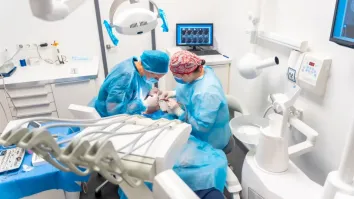
Dr Stephanie Allen, senior Partner at Kearney, highlights the macro trends transforming Asia’s healthcare landscape
She delved into six forces shaping Asia’s healthcare future.
Joining the judging panel for the prestigious Healthcare Asia Awards 2024, is Dr Stephanie Allen, a seasoned expert with over 23 years of experience in healthcare. She boasts an impressive track record, leading complex projects with a deep understanding of the region's diverse healthcare landscape, and her expertise spans global health trends, strategic planning, and fostering collaboration between stakeholders.
In a recent conversation with Dr Allen, she offered valuable insights into the trends altering the current healthcare landscape in Asia, highlighting the various factors fuelling these rapid changes.
“Asia is primed for rapid healthcare change, driven by shifting demographics, rising consumer expectations, scientific breakthroughs, technological innovations, new funding models and limited legacy health infrastructure,” she said. “Collectively these factors have catalysed governments, payers, providers and consumers to reimagine healthcare delivery and management.”
Six forces shaping Asia's healthcare future
Dr Allen noted six fundamental forces that are collectively influencing healthcare in Asia, emphasising that the said forces are not unique to the region and do not have the same impact on each country within the region. “This is a region of contrasts and understanding this is vital.”
These forces are; an ageing population, consumerised healthcare, cost pressures, labour market challenges, technological innovation, and addressing access and social determinants of health (SDH).
Asia's population is getting older, with an anticipated senior population (65 years old and above) of about half a billion people — roughly 10% of the population — mostly impacting countries like China and Japan.
This necessitates a redesign to support “healthy ageing” programmes, as exemplified by Bangkok Hospital Pattaya's "Mission to the Moon" initiative, which is committed to improving health and life expectancy for those older than 85 years old. Focussing on healthy hearts, bones, and brains, as well as freedom from cancer, they have redesigned their teams for clinical operational groups to integrated patient units. “Physician-led teams and care managers work collaboratively to integrate multidisciplinary teams, allowing a better service to older patients with complexity and co-morbidities,” Dr Allen explained.
On top of the ageing population, healthcare itself is being consumerised and consumers are now demanding more transparency, quality, and 24/7 access to healthcare. As such, there is a rising need for telehealth and telemedicine to get on-demand access, further amplified by the burgeoning medical tourism industry across the region.
The rising cost of care, particularly for those with chronic conditions and those suffering rare diseases, is likewise a major concern.
“Although there are rapidly developing private/corporate insurance schemes, governments remain the dominant payer in Asia, accounting for 65% of all health expenditures. Finding ways to control the growth of healthcare expenditures remains an urgent public priority, as does a pivot to preventative primary care as well as curative hospital-based care,” Dr Allen said.
There is a current and exacerbating shortage of healthcare professionals across the region, particularly anaesthetists, radiologists and nurses. This is forcing innovation in new care models, workforce structures, and a growing interest in hub/spoke clinical decision-making and support models within the country and across borders.
The labour market challenges are apparent in countries like India, where at least 1.8 million doctors, nurses, and midwives are needed to achieve the minimal density needed to provide equitable care. However, there remains an outmigration of many clinicians as almost 70,000 practising medical professionals in India (equivalent to 10% of the indigenous workforce) work in countries such as the US, UK, Canada, and Australia.
Amidst the absence of clinicians and legacy brick-and-mortar infrastructure, Asia is at the forefront of innovations in health and scientific research, technology adoption and AI, boasting significant investments in digital health and attracting attention from around the world.
Singapore's healthcare digitisation and China's advancements in AI healthcare are prime examples. Initiatives like Thomson Specialist Woodleigh in Singapore showcase the seamless integration of technology into the patient journey.
Finally, social factors like clean water, nutrition, and education significantly impact health outcomes.
“These factors, the social determinants of health, disproportionately impact lower socio-economic and/or vulnerable communities. Addressing these systemic issues through innovative funding, cross-sector integrated delivery models, and local community empowerment models, within a restorative planetary framework, will be the foundations for inter-generational health equity,” Dr Allen stressed.
Initiatives like Sunway Medical Centre's community outreach programmes which provide health literacy and partner with local producers to deliver fresh vegetables to vulnerable households demonstrate efforts to address these issues and promote health equity.
Measurable positive impact
As a judge in the Healthcare Asia Awards 2024, Dr Allen prioritises several criteria. ‘It's easy to come up with a good idea in healthcare, it is much harder to deliver impact on the ground’.
As such, she evaluates entries based on the extent to which the initiative is able to deliver meaningful outcomes that make a tangible difference to people's lives, the extent to which the initiative can be scaled, whether the environmental impact has been adequately considered and incorporated into the solution design and how the initiative addresses issues of health equity.



















 Advertise
Advertise





